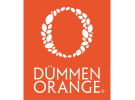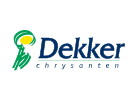Is it possible to further reduce the use of chemicals in the production of cuttings in Africa? In order to find out, six major propagators in the chrysanthemum sector carried out trials at their joint test site in Kenya over the past 4 years. They gathered a large body of data and this morning, in a webinar, they shared the research outcomes and elaborated on the insights it gathered.

“Together, we know more and are able to achieve more”, says Suzanne Kos, Teamleader Quality and Research at Deliflor, “however, in practice, little is being exchanged regarding Integrated Pest Management (IPM). Which combination of biological crop protection products give the best results? Which products are available and which are effective?
To start the collaboration, a steering committee and working group were set up with representation from each company involved, which was announced last month. All the parties work together in full transparency and autonomy, without any direct commercial gain.
A trial greenhouse has been realized on the Dummen Orange site in Kenya, where three tests have been carried out with various pathogenic fungi and other crop protection products. Suppliers were deliberately not informed so that the one did not receive preferential treatment over the other.
Trials in Africa necessary
In the webinar, Manuela van Leeuwen, a phytosanitary specialist at Dümmen Orange, showed several conclusions and the main conclusion is that carrying out trials under African conditions can provide more realistic data compared to trials under laboratory or greenhouse conditions in the Netherlands.
The trials demonstrated that there is potential to produce cuttings in Africa using fewer chemicals, in a way that the produced cuttings can be shipped to the Netherlands without problems.
The webinar was concluded by Dik van Alfen, Manager International Operations at Royal van Zanten, who briefly discussed the future focus of the project. This includes learning about best practices to control pests and diseases in cutting production, the effect of chemical residues and residue levels, plant resistance, crop protection during rooting, and desinfection of soil or substrate. The desire to use IPM to produce cuttings that are 100% free from pests and diseases remains a challenge. Therefore, the steering committee has expressed its intention to continue its collaboration and to focus its efforts on achieving the established goal.
Six propagators in the chrysanthemum sector have joined forces to further reduce the use of chemicals in the production of cuttings in Africa. Since 2017, the unique group of companies comprising Dekker Chrysanten, Deliflor Chrysanten, Dümmen Orange, Floritec, Royal van Zanten and Armada (since 2020) has been collaborating closely on Integrated Pest Management (IPM) with the aim of achieving this common goal.






